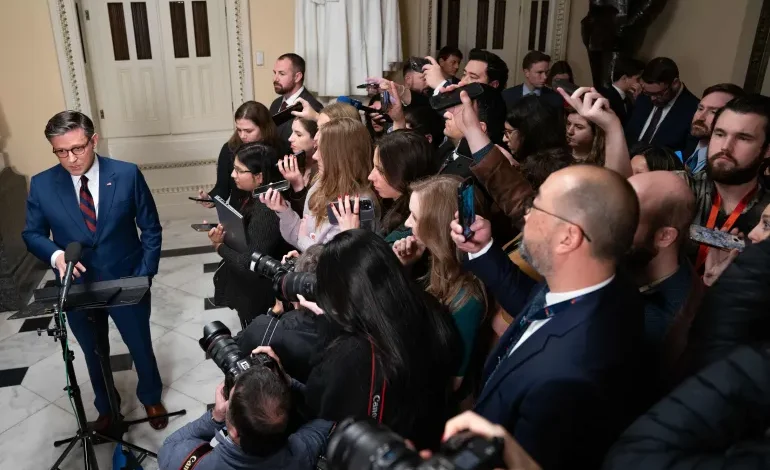US Government Faces Partial Shutdown After Spending Bill Rejected

The United States government is teetering on the brink of a partial shutdown after the House of Representatives rejected a spending bill backed by President-elect Donald Trump, Al Jazeera reports.
The 174-235 vote on Thursday evening failed to secure the necessary support, leaving millions of Americans facing potential disruption to government services during the busy holiday travel season.
The defeat came after opposition from a coalition of Democrats and 38 hard-right Republicans who defied the president-elect, arguing the bill would add trillions to the already substantial $36 trillion national debt. This rejection marks a significant setback for Trump, who had personally endorsed the measure.
The bill, a last-ditch effort by Republican House Speaker Mike Johnson, initially enjoyed bipartisan support. However, its demise followed earlier disagreements involving Trump, Vice President-elect JD Vance, and Elon Musk, who opposed a previous spending package. Trump’s demand to either raise or eliminate the debt ceiling before his January 20 inauguration proved a major stumbling block.
The rejected bill would have provided three months of government funding, delayed the debt ceiling until 2027, and allocated $110 billion for disaster relief. Prior to the vote, Democratic House Minority Leader Hakeem Jeffries condemned the bill as “not serious” and “laughable,” while Republicans also voiced concerns about escalating spending.
Following the failed vote, Speaker Johnson said that Republicans would regroup to find an alternative solution. However, without a new agreement, a partial government shutdown will begin at midnight Friday, as current funding expires.
A shutdown will have far-reaching consequences. More than two million federal workers face the prospect of missing their holiday paychecks. Budget cuts will impact numerous government agencies, from immigration services to the National Park Service. For the public, potential delays are anticipated, particularly at airports during one of the busiest travel periods of the year. While essential personnel like air traffic controllers will continue working without pay, the Federal Aviation Administration anticipates furloughing up to 17,000 workers. The Transportation Security Administration (TSA), with only 3,000 of its 62,000 employees considered non-essential, has warned of potential security delays.








